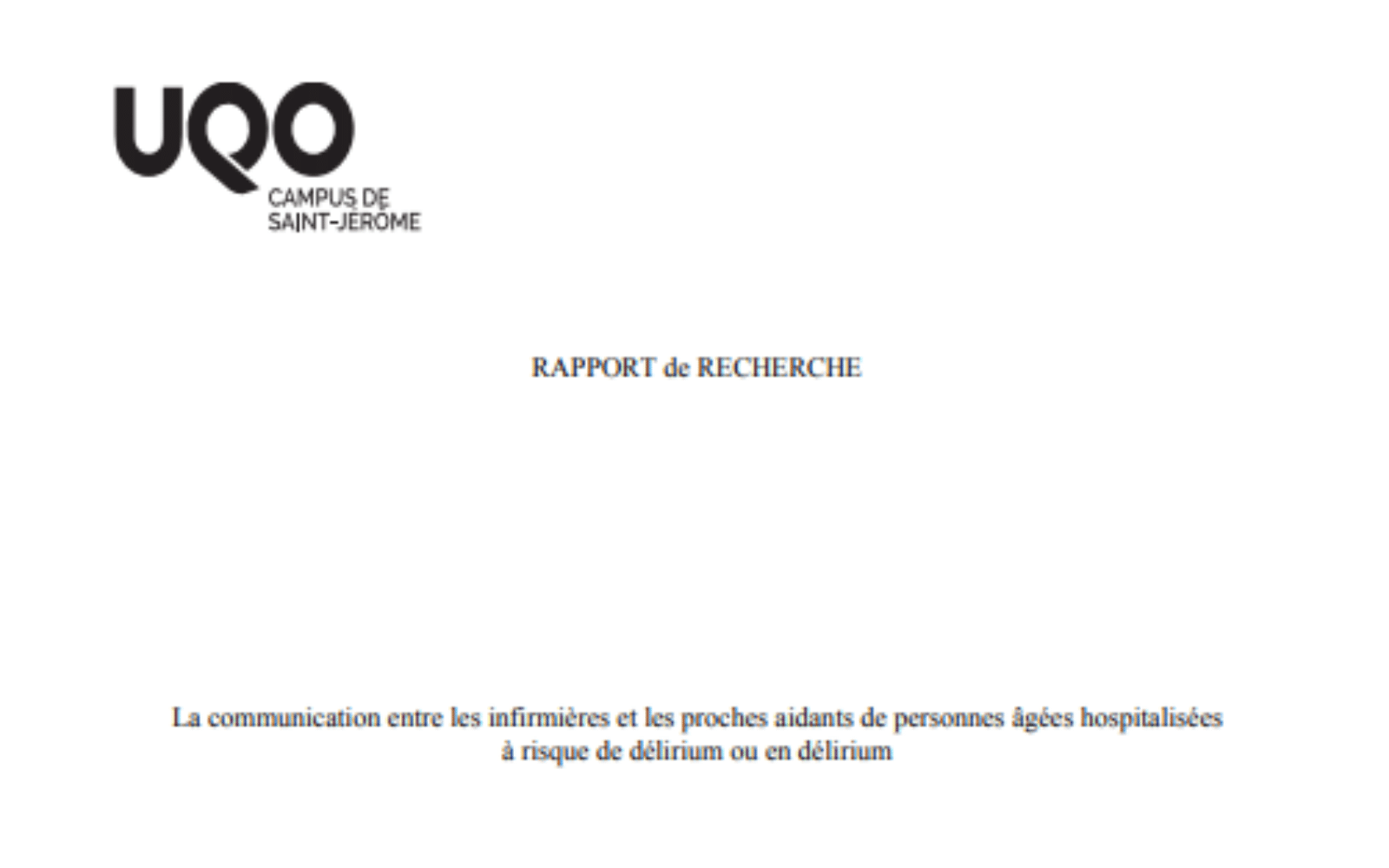This research report (66 pages, in French) presents the findings from a study on circular communication between nurses and the family caregivers of hospitalized older adults at risk of or actively experiencing delirium. It was written by sociologist Monique Benoit and nurses Louise Bélanger, Anne Bourbonnais and Roxanne Bernier. Using a multiple case study methodology, the authors examine four cases involving 13 individuals to highlight the factors most apt to influence caregiver/nurse communication. They also suggest avenues for reflection in terms of research, training, practices and management, with a view to developing better communication between nurses and caregivers.
La communication entre les infirmières et les proches aidants de personnes âgées hospitalisées à risque de délirium ou en délirium
This research (in French) report presents the findings from a study on circular communication between nurses and the family caregivers of hospitalized older adults at risk of or actively experiencing delirium.
Year: 2016
Languages: French
Format: Document (article, report, guide, etc.)
Dimension(s) of caregiving:


Need help? →
CALL 811 (Info-Santé/Info-Social). If you need support or have concerns or questions about your health or that of a family member or friend, call 811 to speak to a nurse or psychosocial worker. Bilingual and available 24 hours a day, 7 days a week, it’s free and confidential.
To speak to a caregiver counselor about a difficult situation, ask questions or get a referral, call l’Appui’s Caregiver Support Helpline.
Bilingual; open Monday to Friday from 8 a.m. to 6 p.m.
To find community resources offering caregiving information and support near you, consult l’Appui’s Resource Directory or Proche aidance Québec's list of member organizations (in French only).

